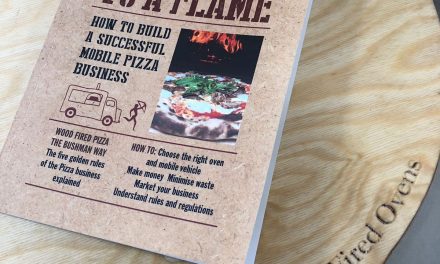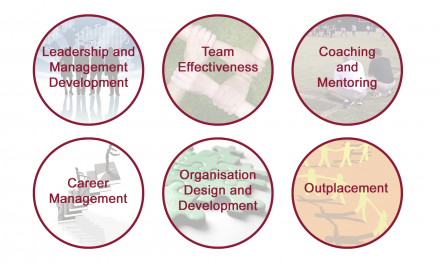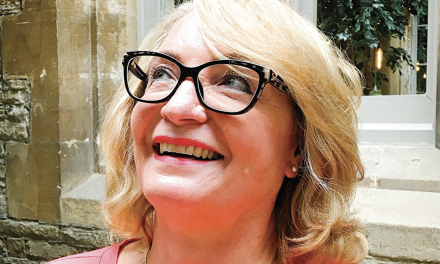DAVE DEAN INTERVIEWS JAMES VANREUSEL
Hello again and welcome to another episode of Up Close & Personal. You’re listening to Dave Dean today and I’m very honoured to be joined by our very own CFO in a Box founder and founder of Vanreusel Ventures, Mr James Vanreusel. Good morning Sir, how are we?
James Vanreusel: I’m great, thanks Dave… good morning!
Dave Dean: It’s great to be with you James. It’s fantastic that Steve Matthews is generally doing the Up Close & Personal interviews and of course he’s had to travel all around the UK to meet the victims for each magazine. But unfortunately, he wasn’t able to make it to San Francisco today, so I’ve had to go through the trials and tribulations of getting out of the country and getting across, but it’s great to be with you today.
JV: It’s great to see you as well Dave.
DD: So James, the whole premise behind Up Close & Personal is about helping our members and others who listen and read the session, to understand more about the entrepreneurial spirit and to really see how people get that and how it develops. Lots of people think that it’s born inside them, but in reality, we evolve and we develop that entrepreneurial spirit. So, help me understand how that happened for you.
JV: Sure… I think it’ll be helpful just to go quickly through my background, and then I’d like to go back and point out data points that point towards the entrepreneurial spirit that I was not aware of at the time, but that seem very clear to me right now. So, I was born in Belgium and I grew up there, when I was 18 I went University in England and met a lot of friends there from the US and decided that I really liked them. I liked the US, I’d been there a couple of times, once to play tennis and once to visit a college friend at SMU in Dallas for a few weeks. I had a great time. I applied to Business School, got into Rice University down in Houston, Texas, so I went there for 2 years. Loved it, a bit of a culture shock initially but a lot of fun as the people were very nice down there. Then after 2 years, I got a job in San Francisco at a very aggressive Technology Investment Bank called Montgomery Security’s in 1999, the peak of the tech bubble. Stayed in San Francisco for about 14 months, the hours were brutal as we were working stock market hours. So, I was getting to work at 04:15 in the morning every day. After 14 months, a position opened up in the New York office and so I switched. Bank of America had just bought them as well so it was going into their new Investment Bank Office in New York. I was in New York for 14 years… 8 years at Bank of America Security’s and then I switched over to the Micro Finance sector and became a full time CFO there for 5 years. Got married in 2014, my wife who’s a NDPHD got matched at UCFS in San Francisco in the Paediatrics Department, so I left my job and moved to San Francisco with her. It was a new city and I decided to start my own business, and basically got married as well, so lots of changes all in one week. And so, for the last 3 and a half years I’ve been running and operating Vanreusel Ventures in San Francisco. Having said all of that, nobody in my family is an entrepreneur, so I grew up with a definite mind-set that you get a job, you make money, you get promoted, you build a career and then you retire. So that was really the mind-set of me going to University in England where I studied mathematics and accountancy, and then going to Business School and really getting an employee job. The entrepreneurial data points I think, looking back were very clear. I played a lot of sports growing up, both tennis and football, which is soccer in the US, and so I did a lot on my own. I was very disciplined, I would study when I could. I usually tried to get all my study done for the following week on Friday evening, so I’d have the whole weekend to play sports; and then even in college I was very much a loner, where I’d play sports all the time. I focused on tennis in college both in the UK and also at Rice University, which is a division one tennis school, so that I could do both studying and sports. It made me a little bit of a loner and I think my grades could have been better if I’d have studied in teams, and with other students, but I was just focussed on doing my own thing and just busy at being successful at what I truly loved. So, looking back at the whole High School and University experience, even though I didn’t realise it at the time, I think that was very entrepreneurial, doing my own thing and becoming successful from that and constantly travelling… Moving from Belgium, moving away from my family at 18 and then moving even further abroad to the US. I think that’s the immediate background, but from a career and job perspective, even on Wall Street it’s very entrepreneurial because it’s a meritocracy, and so the better you do, the better you’ll do financially.
Sometimes that’s at the detriment of team mates, sometimes it’s at the detriment of other firms that you’re competing with, but it’s very competitive and it’s, I would say, more individualistic than team based. And so, you’re really trying to build your own book of business, using a sales term to do well. And then I switched over into Micro Finance for the last 5 years of my corporate career and that was also very entrepreneurial. I was based in New York for 5 years, and it was literally my boss, who was an entrepreneur who started that business, and owned large stakes in other software companies. It was the 2 of us and a book keeper who were operating at the beginning, one Micro Finance bank in Samoa, and then over the next 5 years we launched another 3 banks in the South Pacific in 2 holding companies in Singapore and Delaware to run the entire operation. Building out, I think, a team of 120 people.
DD: Wow! Was that across the 3 different banks?
JV: It was across the 4 different banks.
DD: As you were describing your background there, and thank you very much for that by the way, it’ll help listeners and readers to the interview, get a nice feel to who James Vanreusel is. Interesting that you said that you felt a loner, but the 2 main sports you were playing in, tennis, yes, I understand that it’s a single person game unless you’re playing doubles of course, but generally a single person game, but soccer’s a team game. How do you reconcile being a loner in a team game? Were you the centre forward who always wanted the ball, and wanted to score or were you a defender? What position did you play?
JV: I played nearly every position but I ended up playing left mid field, and it’s interesting the last couple of years that I played, I would play left mid field, but because there’s 11 players, there’s always a gap somewhere in the field and so the gap would always be the left wing. So, I would play left mid field/left wing and then I’d just make sure there was a left back who could stop any person coming through.
And then I would help out as well, so I was very fit and constantly running up and down, and so the whole left side of the field was mine.
DD: But still, it’s a team game, so you were engaging with 10 other people on the field there… I don’t want to focus only on sport but you also talked about working with the guys on Wall Street and also in the Micro Finance environment, you were working with a team. A small team perhaps, but you were still working with a team. So, I’m curious, I’m going to dig on that later, about your perception about being a loner. You did say the word a little later, you talked about competitive and I think maybe you’re more or a competitor rather than a loner.
JV: I don’t actually like doing stuff alone, I much prefer being in a team but I seem to end up doing a lot of stuff alone.
DD: Is that simply because your team hasn’t grown to the size that you want it yet?
JV: It’s possible.
DD: I know that you’re doing a lot of work with G, Guillaume at the moment and you’re actively recruiting for 2 more people. I think your Virtual Assistant starts?
JV: Today!
DD: Today, there we go… and you’re looking to fill new role very shortly. So, you touched on a couple of data points there, and I know you moved to San Francisco, Betsy’s job took her there and it was a natural progression for you both, but what was the real thing that said to you, “I’m not going to go and work for somebody else as CFO, I’m going to do this myself”? What told you to do that?
JV: I can’t really remember, all I know is, I was working so many hours anyway that I think I probably personally felt that I was running part of the business on my own, so if I’m going to work that many hours, why not run my own business. Even though I wasn’t 100% sure what that was going to look like.
DD: So, what that sounds like to me, is… and we all do it by the way, this isn’t a judgement on you. That was very close to, almost the exact description that Michael Gerber speaks of in the book the E Myth. Where he describes people as technicians suffering from entrepreneurial seizures. I did the same, I felt that I was working for somebody and putting all these hours in, thinking, “Why am I doing that? Why don’t I just go and work for myself”? So, you’re working for someone else, then you have this epiphany one morning, “Why don’t I just put the money in my pocket and not somebody else’s”, but it must have been a really tough thing to do. You’re in a new city with very few contacts, no existing clients and you decide one morning, “I’m going to do this myself”.
JV: Yea.
DD: It must have been a challenge?
JV: Yea, it was a challenge. I had an eye twitch for a month because of exhaustion I think, not so much nerves, that eventually went away, but it was really annoying.
DD: But help me understand, so here you are, as I say, brand new city… What did you do, what was the first thing you did, you had to go and find customers from somewhere?
Listen to the rest of the interview at 729Renegades.com/podcast




